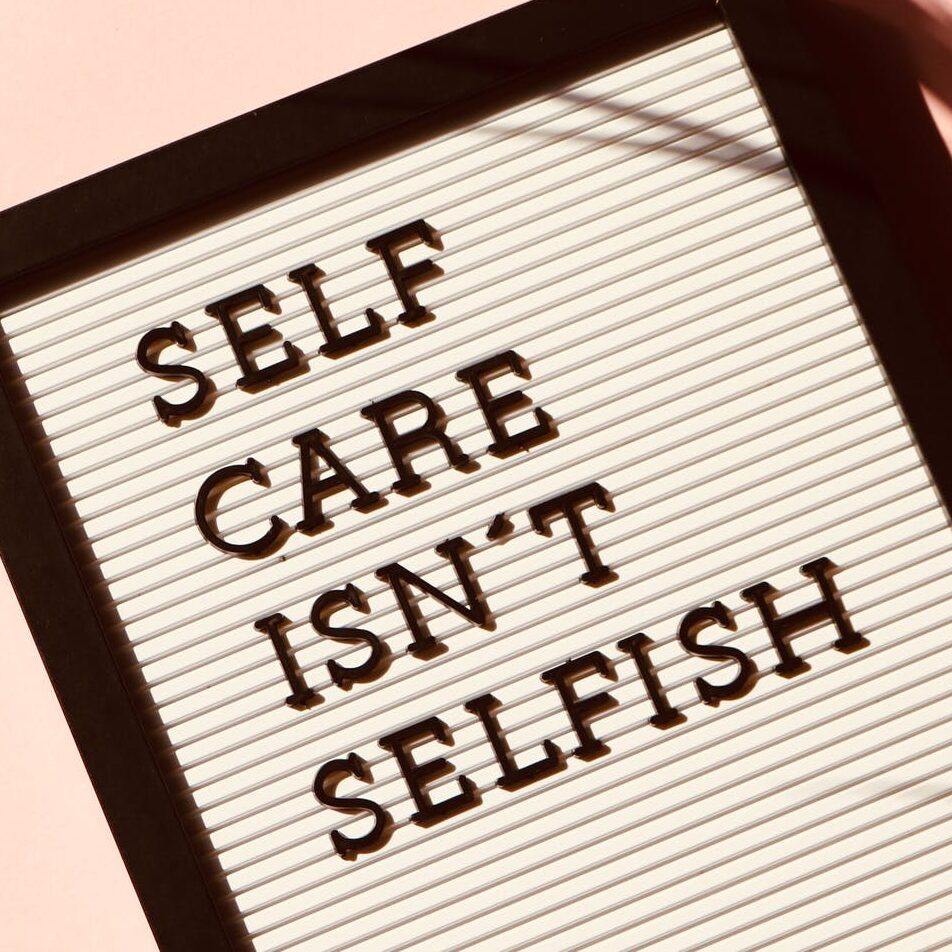Everyone deals with some form of stress in their life, and it’s not always easy to find relief. Relationships, family and work obligations, personal goals, financial issues, just name one. For Music therapists, self-care is of utmost importance to be effectively clients. We may not be able to avoid stress, but, there are ways of learning to identify stress triggers, manage stress levels and cope with the stress and anxiety. Here are 10 simple ways to effectively manage your stress levels.
#1: Listen to Music

When you think about reducing your stress levels, you probably also think about peace and quiet. And while silence can be calming, there are genres of music that can promote tranquility and inner peace which result in lower stress levels. When it comes to lowering blood pressure and heart rate, turn to slow-paced instrumental music. The soothing and beautiful sounds will help you feel, grounded, calm your mind and make you feel at peace.
You can also unwind with the sounds of nature. This is easy if you live in an area that is full of natural treasures. But, for most of us living in the cities, the easiest way to achieve this is to look up environmental sounds of waterfalls, mountains or the woods on Youtube and relax to it. Simply search for “nature music” online and see what comes up. Most often than not, you’ll be spoiled for choices.
Some people also like ASMR (Autonomous Sensory Meridian Response) inducing sounds of various types. ASMR is a tingling sensation that travels from the head downward that some experience in response to certain sounds, feelings, or descriptions. These can include soft whispering, crinkling paper, or a gentle touch. Check out the most popular ASMR vidoes on Youtube.
#2: Get Moving!

An easy, natural, yet incredibly powerful method of reducing stress is as simple as putting one foot in front of the other and increasing your day-to-day physical activity levels. For those of us who spend a good amount of our time sitting behind a desk, getting in some exercise isn’t always something we make time for – but it’s an important component in resetting your mind and body, which will ultimately help you to minimize stress levels.
When you think of committing to a regular exercise routine, you might feel overwhelmed. After all, most of us live extremely busy lives and it’s not always easy to find that extra time to squeeze in a work out. But in truth, all it takes is 15 to 30-minutes a day, most days of the week, to see an increase in your overall mood and stress levels. Plus, there are simple ways to incorporate exercise into your existing lifestyle, such as purchasing a work desk that allows for adjustable height so that you can spend a few minutes every hour standing while working.
Every time we exercise, our bodies naturally release endorphins. These endorphins are hormones that travel throughout our body, giving us a boost of energy, and actively ridding the body of stress and anxiety. To get an idea of just how much exercise can improve your mood by releasing these powerful endorphins, take 10 minutes and either walk or jog lightly in place.
You’ll be surprised at how much stress you’ll relieve just with some basic exercise, and improve your general fitness! In addition to these benefits, exercise can also give you some much-needed alone time so that you can reset your mind and spirit. Throw on some headphones and pair the activities with your favourite upbeat music. You’ll be amazed at how quickly your stress will subside just by giving yourself the opportunity to recharge. Between releasing endorphins and getting away from it all, plus making a healthy lifestyle change, you’ll find that exercise is a natural stress relief that everyone can benefit from.
#3: Disconnect to Reconnect

Access to the Internet has brought a lot into our world: convenience, social networking, the ability to work from just about anywhere. But with unbound connections come extraordinary amounts of stress. Just think about the last time you sat down to have a nice meal with friends or family. Chances are, you were distracted by your mobile device, at least to some extent. And it’s not your fault. We’ve become completely numb to the sound of notifications going off on our phones and tablets – incoming emails, alerts and a myriad of other signals that pull our attention in a hundred different directions.
If you work online, the constant incoming noise can leave you overwhelmed and stressed. You feel pressured to respond quickly and find yourself constantly having to refocus your attention because of so many things happening at once. It’s important to learn to cut out the noise, disconnect and recharge your mental and emotional batteries. Read a book, play an instrument, go for a stroll or just sit outside watching nature. Anything that doesn’t involve some type of a connected device.
Not only will this help you manage stress levels by giving yourself a mental “time out”, but ultimately, the downtime will boost creativity levels and help you be much more productive. It’s important to focus on your own personal down-time every day, even if it’s just an extra hour away from the chaos of your connected life to reconnect with the world around. Learning to disconnect from the internet and reconnecting with life for some time every day it will ensure you’re always at your very best.
#4: Get Enough Sleep

This cannot be stressed ENOUGH! When we don’t rest enough at the end of our day, our body can tense up and it leads to irritability and depression. And when we’re irritable or depressed, we’re stressed. To determine just how much sleep your body needs, it’s important to establish a regular sleep schedule, even on your days off. It will force your brain go into shutdown mode at the same time every night, regardless of what you have planned for the next day. Once you make this change and catch up with your sleep, you’ll find that you’re less stressed, and overall, much happier.
To establish a regular sleeping pattern, you’ll just need to do a few things each and every day. First and foremost, is to put away your device before going to bed. Staring at a screen and scrolling has been linked to insomnia-related issues (which lead to high stress levels). You’ll also want to avoid any exercise about 2-3 hours before your scheduled bedtime. Exercise creates endorphins that give us energy. And while that’s a good thing, you want to give your body adequate time every night to wind down. A warm bath or a cup of non-caffeinated tea can work wonders.
Another way to relax your body is with food. Try having a banana or two, or a handful of peanuts, or even a turkey sandwich about three hours before bedtime. These foods contain tryptophan, which after being consumed, creates melatonin: a hormone that makes us sleepy. But avoid eating too close to your bedtime, as doing so can cause heartburn and acid reflux. Getting the perfect night’s sleep is an easy and natural way to keep stress at bay!
#5: Be Mindful of Your Diet

In some cultures, stomach is often metaphorically referred to as a “second brain”. What they are tying to say is that, what you eat has a great influence over how you think and feel. A diet full of carbohydrates, oily or processed foods can put our stomachs at unease and increase stress levels in our body. Unless you immediately channel all of these into fuel, such as for a workout, they can easily wreak havoc on our systems.
So, if your diet is fairly high in grains and sugar, consider cutting back and see how much it helps your stress levels. When you do cut back on carbohydrates, you’re bound to feel significantly less sluggish. Just think about the last time you ate a generous portion of bread, and how you felt immediately afterwards. Plus, studies have shown that easing up on carbohydrates helps reduce your risk of getting diabetes. Simple practices such as limiting processed food, replacing carb-heavy food with green alternatives, and avoiding sugary drinks as much as possible can work wonders in alleviating general stress.

Many adults are also self-professed caffeine addicts, and studies now show that coffee does come with some health benefits. But as with everything in life, moderation is key. Reducing your caffeine intake, be it in the form of coffee or other high caffeinated beverages, is a natural way to reduce and relieve stress. Just as many of us need caffeine to function after waking up, too much can make us jittery and scatterbrained.
If you’d like to try cutting back on your caffeine intake, it’s important to do so in moderation. Caffeine can be addicting, and going cold turkey can lead to withdrawal symptoms. Try cutting back just one cup a day and see how you feel. Depending on the outcome, keep doing this until you find your threshold. Who knows, you may find that you don’t need caffeine at all!
#6: Avoid Procrastination with Routines
Yes, we’ve all been there and are guilty of this. Putting tasks off until the last minute can add a tremendous amount of stress to your life, especially if they’re important tasks with a specific deadlines. And while it’s often hard to get things done in a timely manner, it’s not impossible with a regular routine. Whatever tasks you need to accomplish, it’s important to write them down on a To-Do list or use an online project manager to help you stay on track.

This can be for your personal or work life, or you can even have separate lists for both. Put the tasks that are most important at the very top of your list, paying close attention to whether they are actually of upmost importance or not (it’s easy for us to prioritize the tasks we actually enjoy doing over the ones that truly move the needle in our personal or business lives), and then make your way down the list. Be sure to include due dates, too. And avoid scheduling tasks back to back, leaving chunks of time in between each one. You can use this time to reset, or to just do something that you enjoy doing.
It’s important to feed your soul throughout the day, as that’s an easy and natural way to relieve stress. For example, if you are responsible for more than one project at your job, prioritize the one with the earliest deadline and put it at the top of your to-do list. Break it down into segments throughout your day, allowing time for coffee breaks, and some social interaction.
Writers are notorious for producing more words each day by using what are called “sprints”. This is where they write steadily for 20 minutes, then stop for 5-10 minutes, then repeat. By breaking up their processes so that while they are in a sprint they are laser-focused on the task at hand, while also knowing that a mental and physical break is coming up, they are able to stay focused while also ensuring they recharge and reset.
Remember that when we’re stressed, it often affects how we think and that will reflect in our work. Making schedules and sticking to routines is a full-proof way of avoiding procrastination. Thereby, avoiding unnecessary stress and producing quality work, while being kind to ourselves.
#7: Put Yourself First (Always!)

Last but not the least, prioritize putting yourself first before everything else. Not only will it be better for you, it will be better for everyone around.
So many of us are afraid to say no when people reach out for help, advice and support, and by not considering whether saying “yes” is good for us, it can easily lead to incredibly high stress levels. No one wants to miss out on an opportunity and fall behind in this competitive world. So they might sign on for as many tasks or projects as possible. All of this often backfires since people can only do so much before burning themselves out of creative energy and motivation to excel.
Even if you’re someone who thrives under pressure, the truth is, we all have a breaking point. If you find yourself in this situation, take a step back and look over your workload. Ask yourself what you can get done within a reasonable amount of time, and then discuss this with your manager, business partner – or simply yourself. Consider how taking on a heavier workload may cause your current one to suffer in quality. If possible, delegate or outsource tasks that you do not necessarily have to do.
As the saying goes – never put in your mouth more than you can chew. Putting yourself above everything else will not only ensure a healthier and more fulfilling life, but it will dramatically improve the quality of work you put out into the world.

This article suggested some effective ways to manage stress on a day-to-day basis. Use whatever method works for you. What is important is paying close attention to our triggers and making consistent, conscious choices to manage stress before it becomes overwhelming. Always remember to take some time off during the day and get away from it all… only to come back stronger than before.






























